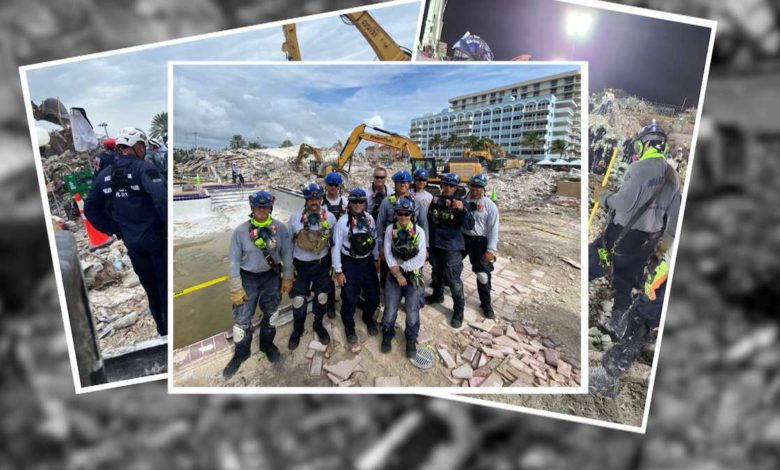

Ohio Task Force 1 has started their long journey home, following a mission at the site of the deadly condo collapse in Surfside, Florida. The crew of 82 members is expected back home Thursday after spending nearly two weeks at the site of the collapse, sifting through debris and recovering victims.In order to address the traumatic toll the recovery effort will have on crews, Ohio Task Force 1 has made and is making mental health resources available."This level of tragedy is not something that we see very often. I think many people have made comparisons to 911," said Dr. Daniel Bachmann, an emergency physician at Ohio State University Wexner Medical Center who deployed as the task force's medical team manager. "Probably the best support was just amongst our own team... We have a lot of people who are experienced in dealing with tragic situations."Throughout the trip, professional help was available through groups like the International Association of Fire Fighters, who had crews at the site of the collapse to meet with search and rescue crews following any traumatic event. "It was emotionally draining work. It was physically demanding work. And for those reasons, I think a lot of us have not even caught up with everything that has happened," Bachmann said. "That's why it's important that we have these ongoing resources not just at the scene, not just as we demobilize but really going forward for days, weeks, months, maybe even years."Team members were briefed on mental health during the stint in Florida and were required to "stand down" for 24 hours before starting the trip home, allowing crews a chance to decompress, talk about what they experienced and seek help if needed. Bachmann said there will be follow-up for each team member, especially due to the likelihood of developing PTSD. "I think the risk that I am most concerned about is that we will lose team members because of the impact of what we've done," he said. "It would be a great loss if we did lose team members, and that's why we want to support them."Letters were sent out Tuesday to each of the families of crew members, offering resources and concerning signs to be aware of in loved ones like difficulty sleeping or irritability.
Ohio Task Force 1 has started their long journey home, following a mission at the site of the deadly condo collapse in Surfside, Florida. The crew of 82 members is expected back home Thursday after spending nearly two weeks at the site of the collapse, sifting through debris and recovering victims.
In order to address the traumatic toll the recovery effort will have on crews, Ohio Task Force 1 has made and is making mental health resources available.
"This level of tragedy is not something that we see very often. I think many people have made comparisons to 911," said Dr. Daniel Bachmann, an emergency physician at Ohio State University Wexner Medical Center who deployed as the task force's medical team manager. "Probably the best support was just amongst our own team... We have a lot of people who are experienced in dealing with tragic situations."
Throughout the trip, professional help was available through groups like the International Association of Fire Fighters, who had crews at the site of the collapse to meet with search and rescue crews following any traumatic event.
"It was emotionally draining work. It was physically demanding work. And for those reasons, I think a lot of us have not even caught up with everything that has happened," Bachmann said. "That's why it's important that we have these ongoing resources not just at the scene, not just as we demobilize but really going forward for days, weeks, months, maybe even years."
Team members were briefed on mental health during the stint in Florida and were required to "stand down" for 24 hours before starting the trip home, allowing crews a chance to decompress, talk about what they experienced and seek help if needed.
Bachmann said there will be follow-up for each team member, especially due to the likelihood of developing PTSD.
"I think the risk that I am most concerned about is that we will lose team members because of the impact of what we've done," he said. "It would be a great loss if we did lose team members, and that's why we want to support them."
Letters were sent out Tuesday to each of the families of crew members, offering resources and concerning signs to be aware of in loved ones like difficulty sleeping or irritability.
Source link









